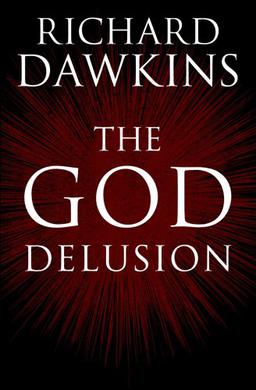
From Publishers Weekly:
The antireligion wars started by Daniel Dennett and Sam Harris will heat up even more with this salvo from celebrated Oxford biologist Dawkins. For a scientist who criticizes religion for its intolerance, Dawkins has written a surprisingly intolerant book, full of scorn for religion and those who believe. But Dawkins, who gave us the selfish gene, anticipates this criticism. He says it's the scientist and humanist in him that makes him hostile to religions—fundamentalist Christianity and Islam come in for the most opprobrium—that close people's minds to scientific truth, oppress women and abuse children psychologically with the notion of eternal damnation. While Dawkins can be witty, even confirmed atheists who agree with his advocacy of science and vigorous rationalism may have trouble stomaching some of the rhetoric: the biblical Yahweh is "psychotic," Aquinas's proofs of God's existence are "fatuous" and religion generally is "nonsense." The most effective chapters are those in which Dawkins calms down, for instance, drawing on evolution to disprove the ideas behind intelligent design. In other chapters, he attempts to construct a scientific scaffolding for atheism, such as using evolution again to rebut the notion that without God there can be no morality. He insists that religion is a divisive and oppressive force, but he is less convincing in arguing that the world would be better and more peaceful without it. (Oct. 18)
Copyright © Reed Business Information, a division of Reed Elsevier Inc. All rights reserved.
From Scientific American:
Richard Dawkins, in The God Delusion, tells of his exasperation with colleagues who try to play both sides of the street: looking to science for justification of their religious convictions while evading the most difficult implications—the existence of a prime mover sophisticated enough to create and run the universe, "to say nothing of mind reading millions of humans simultaneously." Such an entity, he argues, would have to be extremely complex, raising the question of how it came into existence, how it communicates —through spiritons!—and where it resides. Dawkins is frequently dismissed as a bully, but he is only putting theological doctrines to the same kind of scrutiny that any scientific theory must withstand. No one who has witnessed the merciless dissection of a new paper in physics would describe the atmosphere as overly polite.
George Johnson is author of Fire in the Mind: Science, Faith, and the Search for Order and six other books. He resides on the Web at talaya.net
No comments:
Post a Comment